If you were captivated by the raw intensity and harrowing storytelling of 'Requiem for a Dream' (2000), you're likely searching for more films or shows that evoke similar emotions. This article explores nine gripping titles that share themes of addiction, despair, and the human struggle, offering a cinematic experience just as powerful and thought-provoking. Whether you're drawn to psychological depth or unflinching realism, these recommendations will leave a lasting impact.
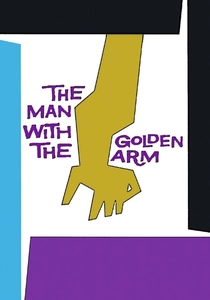
The Man with the Golden Arm (1955)
Description: One of the first Hollywood films to address drug addiction seriously, similar to 'Requiem for a Dream' in its portrayal of the struggle to overcome addiction and the societal stigma attached to it. Both films were groundbreaking in their honest depiction of addiction at the time of their release.
Fact: Starring Frank Sinatra in an Oscar-nominated performance. The film was controversial for its time due to its subject matter. Directed by Otto Preminger, it was one of the first films to challenge the Production Code's restrictions on drug-related content.
 Watch Now
Watch Now 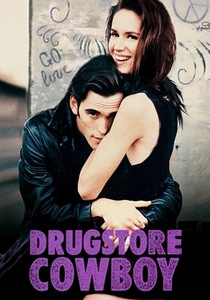
Drugstore Cowboy (1989)
Description: Like 'Requiem for a Dream', this film delves into the lives of drug addicts, showcasing their daily struggles and the cyclical nature of addiction. Both films portray the highs and lows of drug use with a raw, unfiltered lens, and emphasize the personal and social consequences of addiction.
Fact: Directed by Gus Van Sant, the film is based on James Fogle's autobiographical novel. William S. Burroughs, the famous Beat Generation writer, makes a cameo appearance as a defrocked priest. The film was praised for its realistic depiction of addiction without glorifying it.
 Watch Now
Watch Now 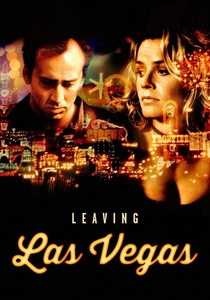
Leaving Las Vegas (1995)
Description: Both films explore self-destructive behavior and the downward spiral of addiction. 'Leaving Las Vegas' focuses on alcoholism, while 'Requiem for a Dream' deals with various forms of substance abuse, but both depict the tragic consequences of addiction with unflinching honesty.
Fact: Nicolas Cage won an Academy Award for his portrayal of Ben Sanderson. The film is based on John O'Brien's semi-autobiographical novel; O'Brien committed suicide shortly after selling the film rights. Director Mike Figgis shot the film in just 27 days.
 Watch Now
Watch Now 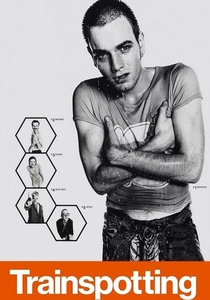
Trainspotting (1996)
Description: Similar to 'Requiem for a Dream' in its unflinching portrayal of drug addiction and its devastating effects on individuals and their relationships. Both films use intense visual and auditory techniques to immerse the viewer in the chaotic world of addiction. They also share themes of desperation, loss of control, and the fleeting nature of euphoria.
Fact: Directed by Danny Boyle, 'Trainspotting' is based on Irvine Welsh's novel of the same name. The film's iconic 'Choose Life' monologue was improvised by Ewan McGregor. It was shot in just 49 days on a modest budget but became a cultural phenomenon.
 Watch Now
Watch Now 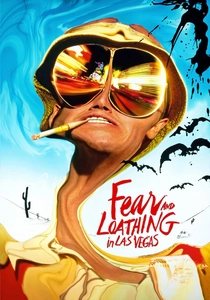
Fear and Loathing in Las Vegas (1998)
Description: While more surreal and comedic than 'Requiem for a Dream', both films explore drug use and its disorienting effects on perception and reality. They share a visual style that immerses the viewer in the altered states of their protagonists.
Fact: Directed by Terry Gilliam and based on Hunter S. Thompson's novel. Johnny Depp, who played Raoul Duke, was a close friend of Thompson and studied his mannerisms extensively. The film initially received mixed reviews but has since gained a cult following.
 Watch Now
Watch Now 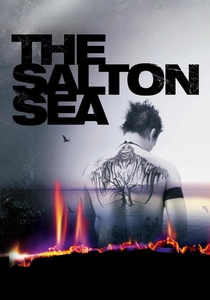
The Salton Sea (2002)
Description: This film shares with 'Requiem for a Dream' a dark, gritty portrayal of drug addiction and its consequences. Both films use a nonlinear narrative and striking visuals to depict the chaotic world of their protagonists.
Fact: Starring Val Kilmer in a critically acclaimed performance. The film's title refers to the real-life Salton Sea in California, a symbol of lost promise and decay. Director D.J. Caruso used a unique color palette to differentiate between the protagonist's past and present.
 Watch Now
Watch Now 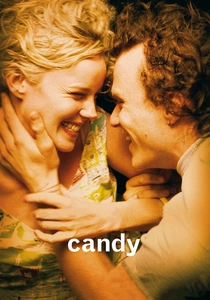
Candy (2006)
Description: Similar to 'Requiem for a Dream', 'Candy' portrays the destructive power of addiction on a romantic relationship. Both films use vivid, sometimes surreal imagery to depict the highs of drug use and the devastating lows of withdrawal and consequences.
Fact: Starring Heath Ledger and Abbie Cornish, the film is based on Luke Davies' novel. The film is divided into three chapters titled 'Heaven', 'Earth', and 'Hell', mirroring the stages of addiction. It was Heath Ledger's last Australian film role.
 Watch Now
Watch Now 
Beautiful Boy (2018)
Description: Both films deal with the harrowing effects of drug addiction, but 'Beautiful Boy' offers a dual perspective, focusing on both the addict and his family. Like 'Requiem for a Dream', it doesn't shy away from showing the physical and emotional toll of substance abuse.
Fact: Based on the memoirs of David and Nic Sheff, a father and son. Steve Carell and Timothée Chalamet star as the father and son. The film's soundtrack features songs by Nirvana, whose lyrics reflect the themes of addiction and despair.
 Watch Now
Watch Now 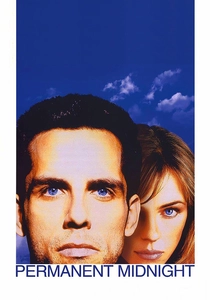
Permanent Midnight (1998)
Description: This film shares with 'Requiem for a Dream' a harrowing look at drug addiction, particularly how it can derail a promising career and personal life. Both films use nonlinear storytelling to reflect the disjointed reality of an addict's life.
Fact: Starring Ben Stiller in a rare dramatic role, the film is based on Jerry Stahl's memoir. Stahl himself wrote the screenplay for the film. The title refers to the perpetual state of darkness that addiction can bring.
 Watch Now
Watch Now 








